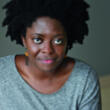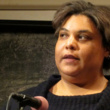Dear Ijeawele, or a Feminist Manifesto in Fifteen Suggestions
(Libby/OverDrive eBook, Kindle)
Available Platforms
Description
More Details
Similar Titles From NoveList
Similar Authors From NoveList
Published Reviews
Library Journal Review
Before Adichie became a mother herself, a childhood friend-the titular Ijeawele-asked Adichie to tell her how to raise her baby girl as a feminist. She begins here with two "Feminist Tools": 1. "I matter equally. Full stop"; and 2. "Can you reverse X and get the same results?," a demand for gender equity. The suggestions that follow are fulfilling ("Motherhood is a glorious gift, but do not define yourself solely by motherhood"), just ("a father is as much a verb as a mother"), wise ("Her job is not to make herself likeable, her job is to be her full self"), and even literary ("Teach her to love books"). January LaVoy proves to be an ideal stand-in for the author, her voice thoughtful and supportive, insistent and assuring, as she reads Adichie's "honest and practical" letter. VERDICT For parents and children of all ages, Adichie's Manifesto should certainly encourage discussion and even enable change. ["A fast read and vital addition to all collections. Anyone interested in social change will enjoy": LJ 5/15/17 starred review of the Knopf hc.]-Terry Hong, -Smithsonian BookDragon, -Washington, DC © Copyright 2017. Library Journals LLC, a wholly owned subsidiary of Media Source, Inc. No redistribution permitted.
Library Journal Reviews
"Teach her that the idea of 'gender roles' is absolute nonsense." This excellent series of essays is award-winning author Adichie's (Americanah) response to a friend's question on how to raise her daughter as a feminist. Adichie shines a light on gender issues in modern society through wise advice dispensed with droll wit and deep earnestness. Writing with tender conviction about encouraging girls to pick up a helicopter instead of, or in addition to, a doll, Adichie explains that to be feminist, women do not have to give up their femininity. We may choose to be brides, but we should also be taught to be independent, that marriage isn't the only option. In other words, a mother should remain her own person, refusing to give up her identity, which is often used to justify oppression. But it's not just women learning to navigate the confusing waters of gender identity; Adichie also offers guidance for teaching men how to embrace feminism and reject rigid gender roles, too. VERDICT A fast read and vital addition to all collections. Anyone interested in social change will enjoy.—Venessa Hughes, Buffalo, NY
Copyright 2017 Library Journal.Reviews from GoodReads
Citations
Adichie, C. N. (2017). Dear Ijeawele, or a Feminist Manifesto in Fifteen Suggestions . Knopf Doubleday Publishing Group.
Chicago / Turabian - Author Date Citation, 17th Edition (style guide)Adichie, Chimamanda Ngozi. 2017. Dear Ijeawele, or a Feminist Manifesto in Fifteen Suggestions. Knopf Doubleday Publishing Group.
Chicago / Turabian - Humanities (Notes and Bibliography) Citation, 17th Edition (style guide)Adichie, Chimamanda Ngozi. Dear Ijeawele, or a Feminist Manifesto in Fifteen Suggestions Knopf Doubleday Publishing Group, 2017.
Harvard Citation (style guide)Adichie, C. N. (2017). Dear ijeawele, or a feminist manifesto in fifteen suggestions. Knopf Doubleday Publishing Group.
MLA Citation, 9th Edition (style guide)Adichie, Chimamanda Ngozi. Dear Ijeawele, or a Feminist Manifesto in Fifteen Suggestions Knopf Doubleday Publishing Group, 2017.
Copy Details
| Collection | Owned | Available | Number of Holds |
|---|---|---|---|
| Libby | 4 | 4 | 0 |

































